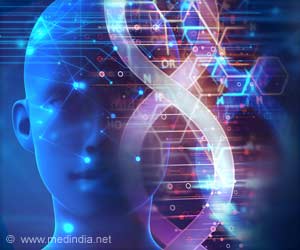Researchers have found proof that cloned animals tend to harbor genetic defects that will disturb their development and lead to abnormalities,
Researchers have found proof that cloned animals tend to harbor genetic defects that will disturb their development and lead to abnormalities, strengthening the rational that reproductive cloning of humans should be banned. However, the researchers noted the technology still could be used safely for therapeutic cloning techniques, such as producing embryonic stem cells to treat diseases ranging from Parkinson's to diabetes.
Cloned animals have major dysregulation of multiple genes so they are not normal at all, principal investigator of the study Rudolf Jaenisch, a biologist at the Whitehead Institute for Biomedical Research.Jaenisch's team looked at 5,000 genes in cloned mice and found hundreds of genes important to development were not correctly expressed in the animals, he said. Overall, about one out of every 20 genes was not expressed correctly in the placenta. Abnormal gene expression also was observed in the liver but at a lower rate.
This ultimately impacts the animal's development and causes all kinds of malformations, he said, and it probably explains why many clones die early, are obese or have other problems. Hans Scholer, director of University of Pennsylvania's Center for Animal Transgenesis and Germ Cell Research in Philadelphia, agreed the research "supports the notion that you shouldn't clone humans." Scholer himself reported research in May that found a single gene was vital to cloning success.
Because the animals appeared normal yet exhibited genetic defects, it should send a message to Severino Antinori, the controversial Italian physician who claims to have impregnated three women with cloned human embryos, Scholer told UPI. "It says, 'even if you show us the face of a beautiful baby, behind the face there might be a terrible problem,'" Scholer said.
Robert Lanza, vice president of medical and scientific development at Advanced Cell Technology of Worcester, Mass., which conducts reproductive cloning in animals, also concurred. The new study is "further scientific grounds to ban all human reproductive cloning," he told UPI. "This definitely raises a red flag for anybody who would want to use cloning for reproducing humans."
The cloning process -- which involves transferring DNA from a single cell of an animal into an egg cell and creating a relatively exact copy of that animal -- does not adequately reprogram the genes for proper development. In other words, the cloned animals showed genetic defects because the procedure does not replicate normal reproduction, Jaenisch said, although it is not yet understood how cloning interferes with the reprogramming process.
Advertisement
Scholer felt that it was working perfectly right. Embryonic stem cells derived from therapeutic cloning would be grown into specific types of cells such as heart or brain cells, he said. If a tissue sample turns out to be faulty or have defects, you just throw it away. But you can't do this with entire organisms" that have arisen from cloning.
Advertisement






